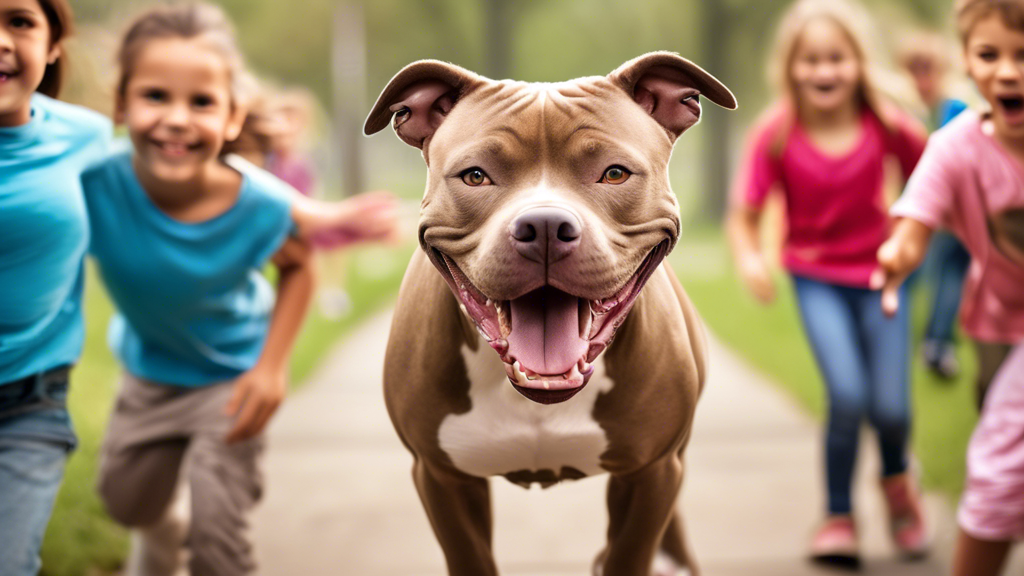**5 Myths About Bully Breeds: Uncovering the Truth**
In the realm of canine companions, bully breeds often face unfounded misconceptions and biases. This article aims to dispel the common myths surrounding these gentle giants, revealing the affectionate and loyal nature that lies beneath their formidable exterior.
Myth 1: Bully Breeds Are Inherently Aggressive
Fact: Studies have repeatedly debunked the notion that bully breeds are inherently aggressive. Their gentle and playful side is often overlooked, as they exhibit affectionate behaviors such as cuddling and licking.
Myth 2: Size and Strength Make Them Dangerous
Fact: While bully breeds possess impressive physical attributes, their size and strength do not equate to aggression. In fact, these breeds are highly trainable and eager to please. Statistics show that they are no more likely to be involved in violent incidents than other breeds.
Myth 3: They Are Prone to Biting
Fact: Bully breeds are not inherently biters. They are known for their gentle and affectionate temperaments. Incidents of biting typically occur due to fear or provocation, and not as an inherent characteristic of the breed.
Myth 4: They Cannot Be Trusted Around Children
Fact: Contrary to popular belief, bully breeds can be excellent companions for children. With proper socialization and training, they form strong bonds with their young human counterparts. Their gentle nature and protective instincts make them ideal guardians for families.
Myth 5: They Are Outlawed in Many Areas
Fact: While certain bully breeds might be restricted in specific locations, they are not outlawed nationwide. In most areas, responsible ownership, proper training, and compliance with local regulations allow these dogs to live peacefully alongside their human families.
Myth 1: Bully Breeds Are Inherently Aggressive
Debunking the Misconception:
The notion that bully breeds possess an intrinsic aggression is a common misconception that lacks scientific basis. Studies and behavioral observations have consistently demonstrated that aggression in dogs, including bully breeds, is often a result of environmental factors such as lack of proper socialization, inadequate training, and poor handling.
In fact, bully breeds are renowned for their affectionate and playful nature. Their playful demeanor makes them excellent companions for families with children. Their strong protective instincts also make them loyal and devoted protectors of their loved ones.
Evidence to Counter the Myth:
- The American Kennel Club (AKC), the world’s largest canine registry, describes bully breeds as affectionate, playful, and good with children.
- A study published in the journal Applied Animal Behaviour Science found that bully breeds are no more aggressive than other breeds of dogs.
- Various animal welfare organizations, including the Humane Society of the United States, advocate for the fair treatment of bully breeds and emphasize their loving and loyal nature.
It’s crucial to emphasize that individual temperament can vary within any breed, and responsible ownership practices, including proper socialization, training, and responsible handling, are essential for ensuring the well-being and safety of both the dog and the community.
The #1 Free Source for Pitbull & Bully Pedigrees!

**Myth 2: Bully Breeds are Dangerously Large and Strong**
The perception that bully breeds are inherently dangerous due to their large size and strength is a common misconception. However, statistics and real-world examples challenge this notion.
Evidence of Temperament
- A study published in the journal Veterinary Medicine and Science found that bully breeds (including American Pit Bull Terriers, American Staffordshire Terriers, and Staffordshire Bull Terriers) were significantly less aggressive towards other dogs and humans than other breeds, such as German Shepherds and Golden Retrievers.
- A report by the American Veterinary Society of Animal Behavior (AVSAB) stated that no individual breed of dog is inherently aggressive, and that aggression is a complex trait influenced by multiple factors, including genetics, socialization, training, and environment.
Trainability and Control
Bully breeds are known for their intelligence and trainability. With proper socialization and training, they can become well-behaved and obedient companions.
- A study conducted by the American Kennel Club Canine Health Foundation found that bully breeds scored highly in trainability, with a mean score of 47 out of 60 (compared to an average score of 43 for all breeds).
- Many law enforcement agencies and military organizations choose bully breeds as service dogs due to their trainability, loyalty, and protective instincts.
Size and Responsibility
While it’s true that bully breeds are larger than some other breeds, it’s essential to note that size alone does not determine aggression or dangerousness. Responsible ownership involves proper training, socialization, and a secure environment for any breed of dog.
- Many small breeds, such as Chihuahuas and Dachshunds, can exhibit aggressive behaviors if not adequately socialized or trained.
- Owners of large breeds, including bully breeds, must take extra precautions to prevent accidents and ensure the safety of others.
Conclusion
The myth that bully breeds are inherently dangerous due to their size and strength is unfounded. Statistics and examples prove that they are capable of being gentle, trainable, and responsible companions when given the proper care and environment. Responsible owners who socialize, train, and manage their bully breeds effectively can create a harmonious and loving relationship with these magnificent dogs.
In conclusion, the myths surrounding bully breeds are largely unfounded and perpetuate stereotypes that do not accurately represent their true nature. While it is true that all dogs have the potential to display aggression, bully breeds are no more inherently aggressive than any other breed. Their reputation stems from a combination of misinformation, sensationalized media coverage, and irresponsible breeding practices.
By debunking these myths, we can promote a more accurate understanding of bully breeds and challenge the negative stigma associated with them. It is crucial to recognize that all dogs, regardless of breed, should be evaluated individually and treated with respect and compassion. Responsible ownership, proper training, and socialization are essential for ensuring the well-being of any dog, regardless of its size or heritage. Through education and responsible breeding, we can help create a more harmonious and inclusive society for both dogs and their human companions.













Leave A Comment